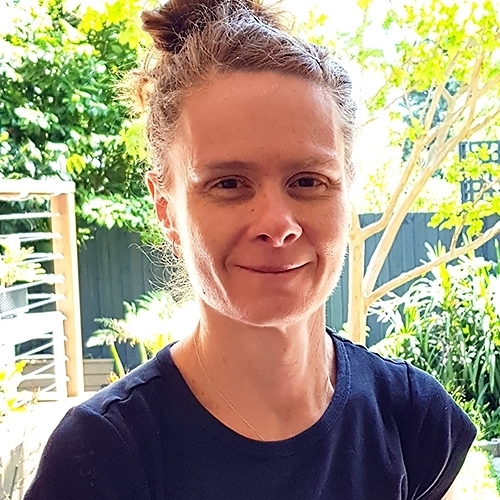 Lactation & Breastfeeding Online Course(s) & Continuing Education
Lactation & Breastfeeding Online Course(s) & Continuing Education
Access the latest clinical skills and research for Lactation & Breastfeeding for professional training. These Lactation & Breastfeeding online courses provide practice-changing skills and valuable perspectives from leading global experts. This Lactation & Breastfeeding education has been accredited for a variety of CEUs / CERPs and can be accessed on-demand, at your own pace.

When Tears Flow and Milk Doesn’t: Support Through Breastfeeding Grief

Amy Barron Smolinski holds an MA from Union Institute and University, where her thesis explored re-emerging Sacred Feminine manifestations in the lives of contemporary women. She is the Executive Director of Mom2Mom Global, a network of breastfeeding peer support, education, and advocacy for military families. She works with breastfeeding dyads in a variety of settings, from inpatient postpartum and NICU to home visits, telephone, and online consulting as an Advanced Lactation Consultant and Certified Lactation Counselor. Supporting breastfeeding families has shown her how each parent’s breastfeeding journey with each of her children is a reclamation of her connection to her inner wisdom and power. Amy is an actress, director, and professional voice artist in Germany, where she resides with her husband and four sons, all of whom breastfed to self-weaning.
Topic: When Tears Flow and Milk Doesn’t: Support Through Breastfeeding Grief - [View Abstract]
Some women who initiate breastfeeding will not meet their duration goals. There are a number of factors that contribute to undesired weaning. For a woman who ceases breastfeeding before she desires to do so, it can be devastating. For the lactation professional or peer supporter, this can also feel like failure. Grief counseling and ethical principles are applicable to supporting a mother grieving the loss of the breastfeeding relationship she desired. This presentation uses case studies to address the questions of how breastfeeding supporters ethically and compassionately support mothers who end their breastfeeding journey before they wish to, how lactation professionals and peer supporters can manage our own feelings in these situations, and what are the ramifications of these cases as we continue to share accurate breastfeeding information in the face of media-driven culture in which infant feeding is loaded with guilt, shame, and fear.

View Details / Enroll

View Details / Enroll

Where Should We Dig? Not All Gold Is Buried Under the Tongue

Carol has been a therapeutic bodyworker in Portland, Oregon for over 26 years. She is a retired home birth midwife. She specializes in infant and maternal Craniosacral Therapy.
Carol is convinced that if women are appropriately supported in growing, birthing and nurturing their babies, their lives will improve. When women's lives improve their children's health improves. Healthy children grow up to be healthier adults who create healthier communities and a saner, more peaceful world. Carol believes that when things are out of balance even the smallest intervention can bring about great healing. Our need for it is so great.
Carol is passionate about using her CST skills to gently make space in maternal bodies so babies can assume ideal positions for gestation and birth. She is currently developing specialized prenatal yoga classes to support and enhance the maternal bodywork techniques she practices and teaches.
Topic: Where Should We Dig? Not All Gold Is Buried Under the Tongue - [View Abstract]
Carol will explain how the sources of tongue and oral dysfunction aren’t always in the mouth. Sometimes the gold is buried elsewhere. She will discuss torques and twists in the body that extend into the floor of the mouth and express themselves as a lack of tongue mobility. She will discuss how fetal lie and restricted fetal mobility cause babies to grow in ways that negatively impact their breastfeeding. These things may masquerade as and/or exacerbate tongue mobility issues disguised as short frenula. Carol will also explain the CST treatment approach for these babies.
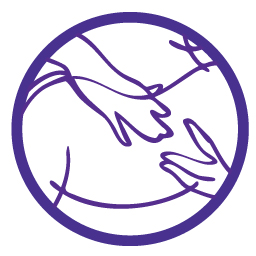
View Details / Enroll
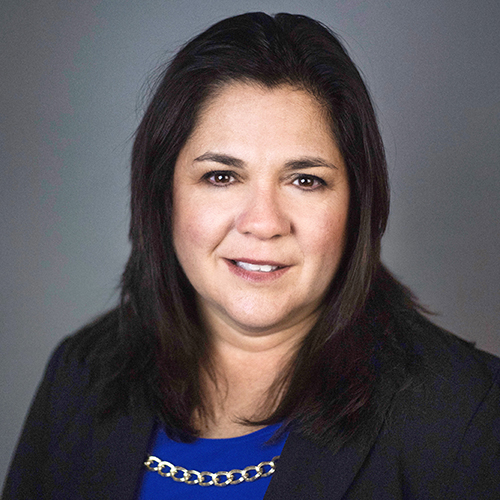
Where to Start: Creating a Lactation Care Plan for Complex Breastfeeding Cases

Annette Leary is a registered nurse with over 33 years of experience working in Maternal Child Health (pediatrics, postpartum, home health care and level 2 NICU). She became an IBCLC in 1995. She owns a private practice providing office, in home, and virtual visits at Orlando Lactation and Wellness. In 2022 she formed a collaborative company Baby B.L.I.S.S. : Central Florida Feeding Collaborative where she and her business partners help families prenatally, antepartum and post partum navigate the growth, development and feeding journey of their children. She began her craniosacral therapy training through the Upledger Institute in 2015, taking advanced maternal and pediatric specialty classes. Annette has found great improvement incorporating craniosacral therapy techniques with lactation consulting. Helping Families Latch onto Parenting has always been her mantra.
Topic: Where to Start: Creating a Lactation Care Plan for Complex Breastfeeding Cases - [View Abstract]
Designing a sustainable proposal of lactation care involves many components. The parents are the main leaders in constructing this plan. Family dynamics that include the physical, emotional and mental health of both parent and child make up the key layout. Setting client-centered goals, developing strategies, outlining tasks and setting up routines are important to accomplishing their personal goals. Families often seek a holistic integrative approach that includes personal goals, support networking, comfort, and collaborative resources that make up their action plan of care. This program will review several complex case studies and how the families designed their plan of care with the guidance and understanding of a team approach.
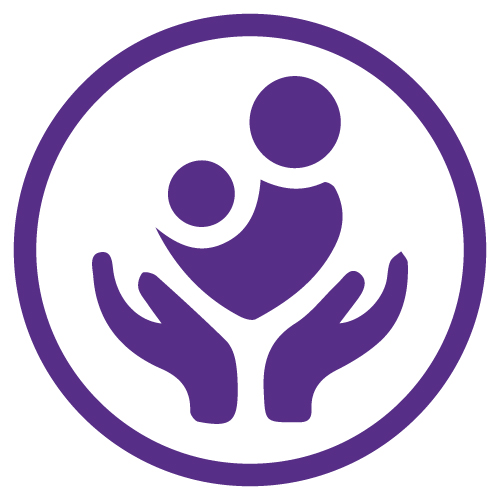
View Details / Enroll


Nikki started as an LPN in 1971, got her RN and BSN, and a graduate degree. She is an author, a teacher, a holistic lactation consultant, a craniosacral therapy practitioner, and a baby body worker (teaching Infant Massage and TummyTime! She is mother to 2 wonderful (breastfed for a long time) daughters, wife to 3 interesting men, only one of whom was the right one for the past 37 years, Rafe!
Her publications include the books, Complementary and Alternative Medicine in Breastfeeding Therapy and A Breastfeeding Owner’s Manual; the monographs, “Benefits of Breastfeeding and Their Economic Impact” and “Sexuality and Breastfeeding” and the educational pamphlet “How to help yourself through labor”. She has been the reviews editor for the journal Clinical Lactation, and has worked as the lactation consultant for the division of Maternal, Child, and Family Health at the Philadelphia Department of Public Health since 2006.
Topic: Words That Work - [View Abstract]
In the past, childbirth educators and breastfeeding helpers have given information that has inadvertently worked against breastfeeding exclusivity and duration. This presentation will address at least 4 common teachings and how they can reinforce perceived milk insufficiency and new mothers’ insecurity about milk supply. Strategies, evidence and scripts will be given to update breastfeeding education.
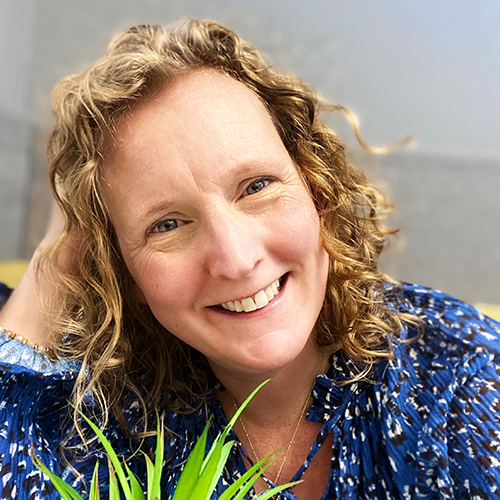

Anna Le Grange is an International Board Certified Lactation Consultant, Registered Pediatric Nurse, Mindfulness teacher and Author. She has worked with new families for over 20 years in a variety of clinical roles. Anna brings her passion for psychology, neuroscience and mindfulness into her lactation support work and facilitates other professionals to incorporate emotional well-being tools into their own lactation practice. Mother to 3 children, Anna breastfed her 3rd child following breast reduction surgery and experienced first-hand, the emotional challenges that so often relate to infant feeding complexities. She used her personal experiences alongside mindfulness and lactation knowledge, to create a toolbox of techniques for breastfeeding families, which she includes in her courses and book, The Mindful Breastfeeding Book. Anna believes whole-heartedly in prioritizing calm and connection within our breastfeeding support practices, both for our clients and ourselves. Anna is currently studying for a MSc in Positive Psychology at Buckingham New University and has spoken at various events including the Gold Lactation, ILactation Conference and Nurturing The Future.
Topic: Being Mindful: Case Studies of Mindfulness Tools in Clinical Lactation Practice - [View Abstract]
Topic: Breast/Chestfeeding After Breast Reduction - [View Abstract]
Topic: Working With Anxious Parents and Fussy Babies - [View Abstract]
In this talk Anna Le Grange explores the causes of anxiety in parents, reasons why babies might exhibit unsettled behavior, and the links between parents with anxiety and unsettled babies. Drawing on recent studies, she shares the latest insights on the correlation between anxiety, infant fussiness and breastfeeding outcomes. Next Anna will describe the autonomic nervous system in parents and babies and how anxiety and infant fussiness may impact both members of the dyad. In the second half of this talk Anna discusses the practical steps that lactation supporters can take when working with babies and their parents to encourage a more calm and connected feeding experience.
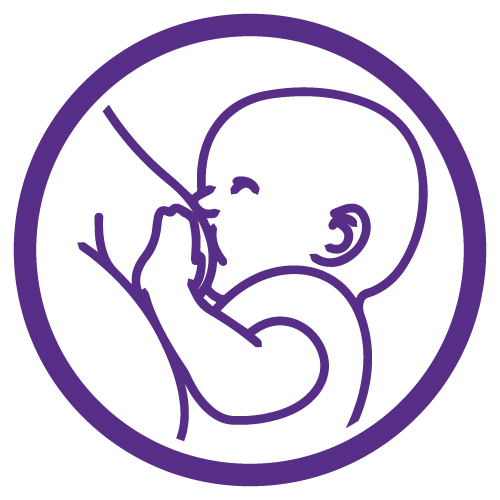
View Details / Enroll
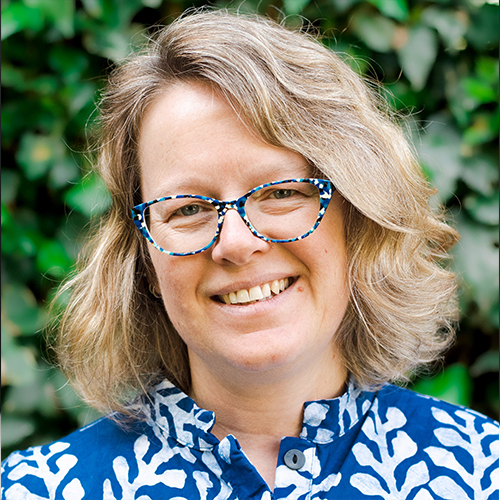
Working With Families Feeding Beyond 12 Months: Offering Support With Confidence

After a career as a primary school teacher and Deputy Headteacher in central London, Emma trained with the Association of Breastfeeding Mothers, qualifying as a breastfeeding counsellor with them in 2007 and continuing with them as their trustee and chair. Emma first qualified as an International Board Certified Lactation Consultant in 2011. She has supported families at groups in North London for 14 years as a volunteer and has a small private practice. Her book, “You’ve Got It In You: a positive guide to breastfeeding” was followed by “The Breast Book: a puberty guide with a difference – it’s the when, why and how of breasts” (published by Pinter and Martin). Her articles have been featured in print and online including on the UNICEF UK Baby Friendly Initiative website. Her article, 'The dangerous obsession with the infant feeding interval' is her most popular. She has two children and lives in London.
This session focuses on supporting parents who are breastfeeding/chestfeeding beyond 12 months. Many of us live in countries where breastfeeding beyond 12 months is not the norm. When it does happen, it may not happen openly. Parents are often feeling increasingly isolated and may be dealing with lack of support from family and friends. There can be further challenges such as new issues with positioning and attachment, conversations with employers and health professionals, dealing with family break-up and thinking about new pregnancies. Parents continuing to feed older children may not always feel able to reach out to local breastfeeding support services that often focus on the newborn period. You will be encouraged to reflect on your personal approach to supporting feeding older children and whether you have any unconscious or conscious bias that may affect your work. The session will give you confidence to discuss the value of continuing to breastfeed with families and colleagues and be able to offer a variety of support.
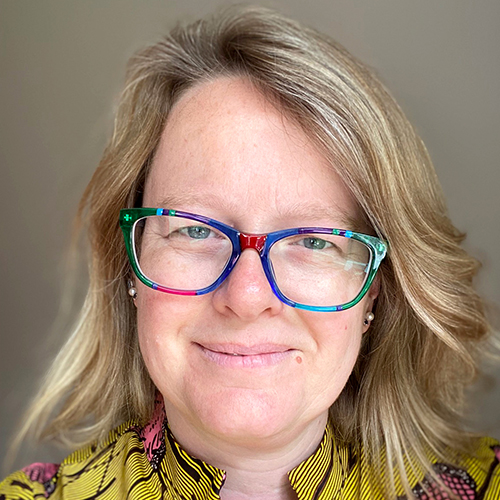
View Details / Enroll
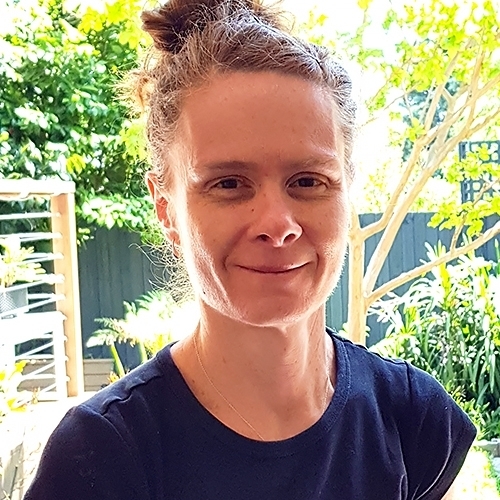
Yes You Can! Breastfeeding A Baby With Down Syndrome

Educator with the Australian Breastfeeding Association (ABA). She has a particular interest in breastfeeding and Down syndrome after her son was born with Down syndrome in 2014. Her journey of breastfeeding her son included a long inpatient hospitalization stay due to his treatment for cancer. She has worked in disability services for over 20 years including community learning disability nursing in the UK, supporting GPs to manage the heath needs of people with complex health conditions and intellectual disability, medical undergraduate education in intellectual disability and currently works in general practice as a Practice Disability Nurse. Heather facilitates Breastfeeding Education Classes to expectant parents, is a Trainer & Assessor in ABA’s training team and provides guidance and contributes to publications on breastfeeding a baby with Down syndrome.
As a health professional you may find yourself supporting a mother who is breastfeeding or requires support to breastfeed her baby with Down syndrome. Babies with Down syndrome can often have additional health needs, which may affect how successful they are with breastfeeding. Down syndrome or trisomy 21 is the most common genetic cause of intellectual disability for around 1 in 700 births worldwide. People with Down syndrome are not all the same but may have similar characteristic physical features, health and developmental challenges and some level of intellectual disability. Research has shown many benefits associated with breastfeeding a baby with Down syndrome. It contributes to establishing long term skill development, particularly with speech and feeding skills, as well as aiding brain growth. It also provides an opportunity for mother baby bonding during stressful periods after learning of their baby’s diagnosis. Regardless of these known benefits, some mothers may nevertheless be told their baby will not be able breastfeed. This presentation will explore some of the common challenges mothers may face when breastfeeding a baby with Down syndrome and tips on how to address these for the mother and baby. The material presented will also assist health professionals to support mothers with babies who may have similar health/developmental needs.

You Don’t Have To: The Duty Mistake, The Justification Trap and Perceived Pressure to Breastfeed

Fiona Woollard is an Associate Professor of Philosophy at the University of Southampton. She works in the Philosophy of Pregnancy, Birth and Early Motherhood, with a special interest in infant feeding. She argues that identifying philosophical mistakes in the way we think about maternal behaviour can help improve conversations about infant feeding decisions. Her work has been widely published in journals aimed at philosophers, medical professionals and peer supporters, and in venues aimed at a general audience. To read more about her work on infant feeding, see https://fionawoollard.weebly.com/infant-feeding.html
Anecdotal evidence of the perception of pressure surrounding infant feeding decisions is easy to acquire simply by talking to new mothers. Several sociological studies report an association between decisions to formula feed and feelings of guilt, blame and failure. I connect perceived pressure regarding infant feeding decisions to a mistaken assumption that if breastfeeding benefits the child, the mother must have a defeasible duty to breastfeed. I call this the Duty Mistake. I show how the Duty Mistake contributes to guilt and shame surrounding the use of formula. It also produces what I call “the Justification Trap”: in a moralized context, requests for information or offers of support are perceived as calls for justification. This makes it much harder to ensure that women are given the support and information they need to meet their feeding goals. This presentation provides an overview of the issues and looks at how they impact the ethical responsibility of lactation professionals to promote and support breastfeeding.

“I just really wanted to breastfeed” - The Impact of Stress on Birth & Baby Feeding in a UK Multi-Ethnic Community

Sally is an IBCLC in Leicester, UK, and has been supporting families there, particularly families from BME communities, for 15 years. Her interest in multi-culturalism and diversity has grown, from teaching French in a large community college, to her current role leading Leicester Mammas CIC, a city-wide community breastfeeding peer support programme developed and delivered by and for local mothers. She has previously been a La Leche League leader, and was part of the pioneering LLL Peer Counsellor Programme team, under the leadership of Sarah Gill, who brought the LLLPCP from the US to the UK. A core element of her approach to protecting, promoting and supporting breastfeeding is its role in the wider society: mitigating poverty, health inequalities and social isolation, and creating strong communities of women from all walks of life. She is has recently completed an MA in Integrated Provision for Families in Early Years. Sally is Deputy Chair of LCGB (Lactation Consultants of Great Britain).
Breastfeeding is valued among BME parents in the UK for cultural/religious reasons. BME communities experience high levels of stress associated with socio-economic inequalities and other factors. Women experiencing depression and anxiety may find breastfeeding alleviates or exacerbates their symptoms, dependent on the quality of breastfeeding support received, and success or otherwise in overcoming early challenges.
Little is known however about how stress impacts on infant feeding, or how women who have faced significant stress feel about their experiences around pregnancy, birth and feeding. This study explored the experiences of mothers in a multi-ethnic, inner-city community, and the effectiveness of community breastfeeding peer support in helping overcome stress-related barriers. I also considered the experiences of the previous generation within the same community and how they compared to the current generation. I found that stress factors impacted heavily on breastfeeding outcomes. Peer support is an important factor in helping women achieve their goals, mitigating stress.

View Details / Enroll

View Details / Enroll









